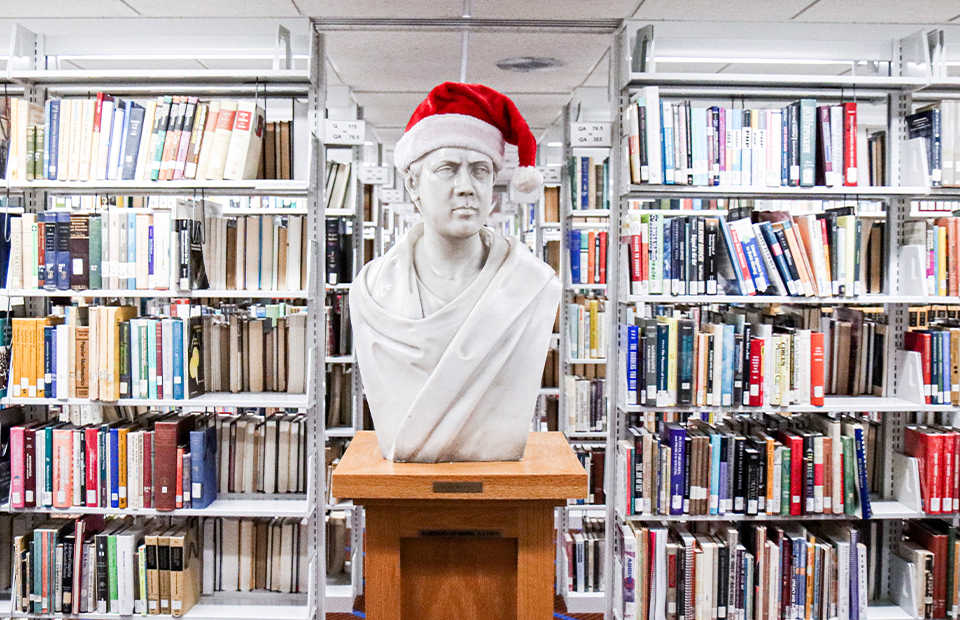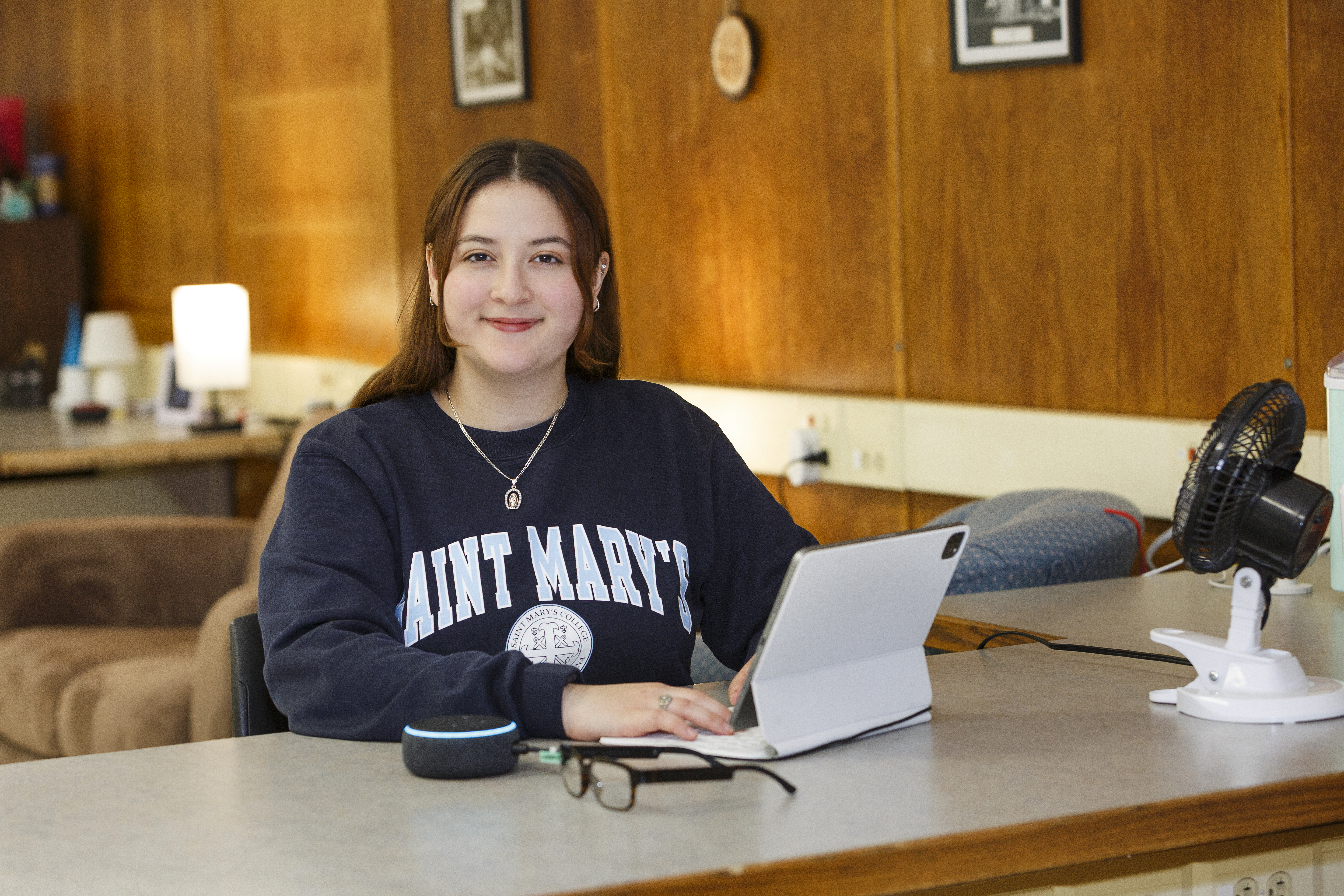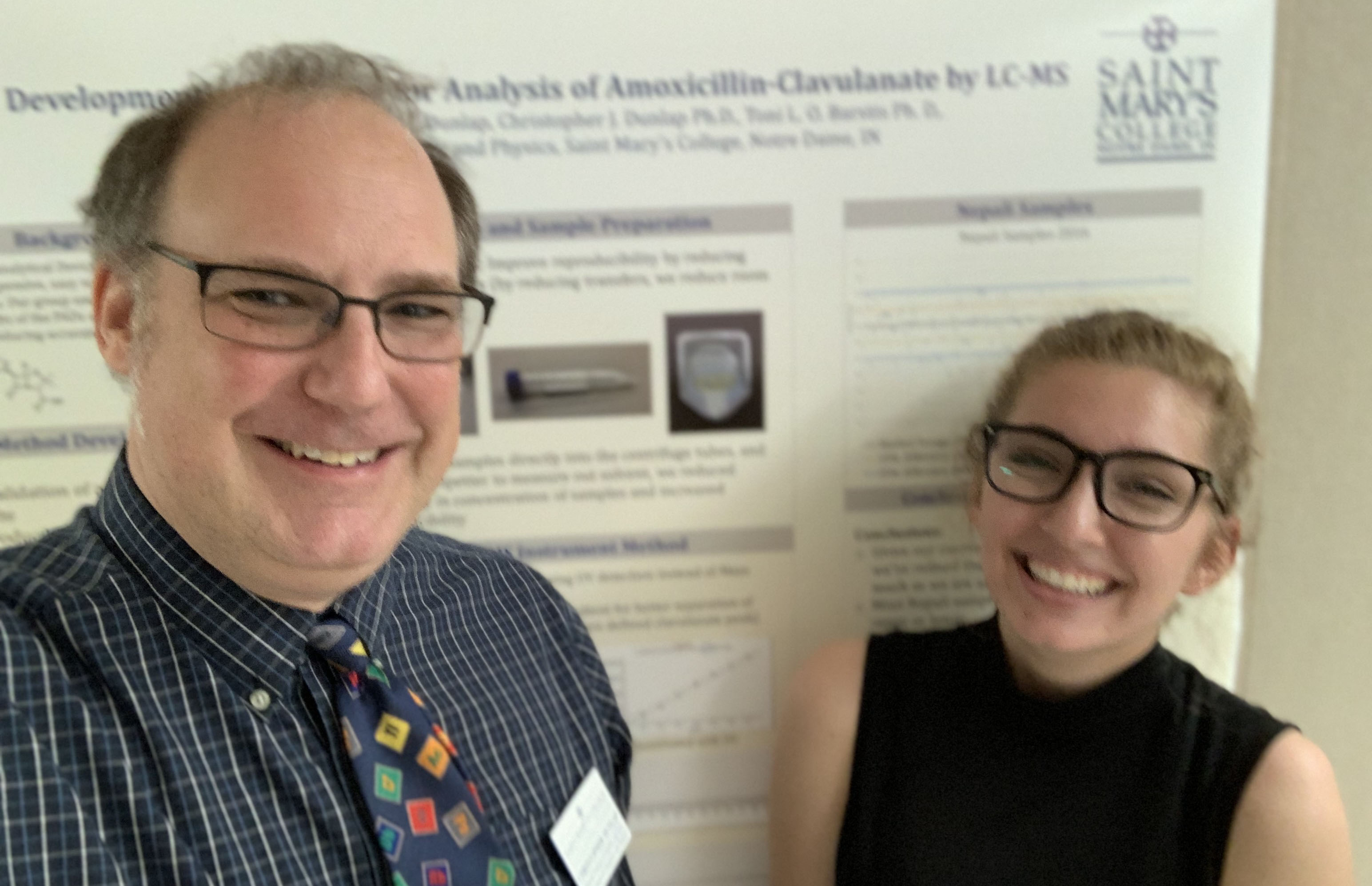Marjorie Neuhoff Summer Science Research Communities
Saint Mary's Stories

By Tess Hayes '25
Some flock to the beach for the summer, but many Saint Mary’s students flock to the science labs. This summer, student scientists are participating in The Marjorie Neuhoff Summer Science Research program, an endowed grant that funds student and faculty teams in biology, chemistry, and physics for summer research under the direction of Christopher Dunlap, associate professor and the Denise DeBartolo York Faculty Chair in Science.
The Neuhoff program pays for faculty and student summer stipends, as well as a small amount for research materials and travel to a conference for the students. According to Dunlap, the program funds two to four research groups of two to four students and a faculty member. The individual groups meet together once a week (along with others researchers on campus in STEM) to discuss professional development topics (careers, presentation skills, etc.) as well as presenting their work to their peers and other faculty.
Summer months allow students to spend full time (40 hours per week for 10 weeks) on these projects, as well as having a more focused mentoring experience with their faculty adviser. Dunlap says this is important because scientific research is difficult to do during the academic year, as many experiments require longer times to complete and analyze. “This allows for significantly more progress to be made than during the regular academic year,” he said.
Mary Grace Heekin ’26 and Katie Huth ’27 are among this year’s cohort of students participating in the Neuhoff program, and are conducting research using data from the Vera C. Rubin Observatory. They are developing a method allowing scientists to locate active binary black holes. “Active binary black holes amass material from their surroundings—like the black hole is eating it— and they are also in orbit with each other,” Huth stated. Heekin and Huth are currently using Python code to develop a system to help them identify and differentiate these binary systems. For Huth, “My goal for this project is to eventually be able to conduct temperature analysis on the binary black holes to see if one of them is hotter than the other. This would allow me to see if the binary black holes' temperatures affect their orbit.” For Heekin, “Black holes and space have always interested me, so I’m excited to work with data from the cutting-edge Rubin telescope, which has the largest camera ever built for astrophysics.”
Mary Collis ’27, a rising sophomore studying how quantum computational chemistry affects energy conservation, said that one of her biggest takeaways is, "It is okay not to know how to do things and not to let it defeat you.” Most of these students are also entering the computer science world, which means many are learning or applying their coding skills. Collis said that she has been teaching herself what she does not know. “It has shaped for me a new way of learning,” Collis said. “It has strengthened my research abilities, making me a more independent thinker.”
Sam Pajak ’25 is studying bees and is buzzing with anticipation as this research is the prelude to her senior comprehensive. Right now, she is creating a neural network to identify bee pollen samples that she has collected. “The easiest way to think about it is that I am training an algorithm,” Pajak said. She works 40 hours a week: 20 in the field at a botanical garden in Niles, Mich., and 20 in the lab at Saint Mary’s. What Pajak did not anticipate is that she’d be writing so much code. She has also done some self discovery: her scientific passion lies in the field, not so much the lab. “That’s where all the people and animals are,” she said. As Pajak enters her senior year, she has learned that her time at Saint Mary’s has led to impactful research for this current day and age.
Dunlap states that when students opt-in to conduct research 40 hours per week for 10 weeks, they also have more time to experiment and more one-on-one mentoring opportunities with their advisors. At the end of the program, students will present their research at a future conference.
Students participating in the 2024 Marjorie Neuhoff Summer Science Research Communities:
CHEMISTRY
Julia Bub '25, Mary Colis '27, and Sophia Freehauf '27, under the supervision of LeeAnn Sager-Smith, assistant professor of Chemistry and Physics.
PHYSICS
Mary Grace Heekin '26 and Kathryn Huth '27, under the leadership of Christina Peters, assistant professor of Chemistry and Physics.
BIOLOGY
Samantha Pajak '25, Madelinien James '25, Erian Stewart '27, and Peculiar Emmanuel-King '27, under the leadership of Morgan Carr-Markell, assistant professor of Biology.
NEUROSCIENCE/BIOLOGY
Georgette Kersmann '25, Grace Renschen '25, and Makenna Schroeder '26, under the leadership of Jennifer Rowsell, associate professor of Biology.
July 19, 2024



